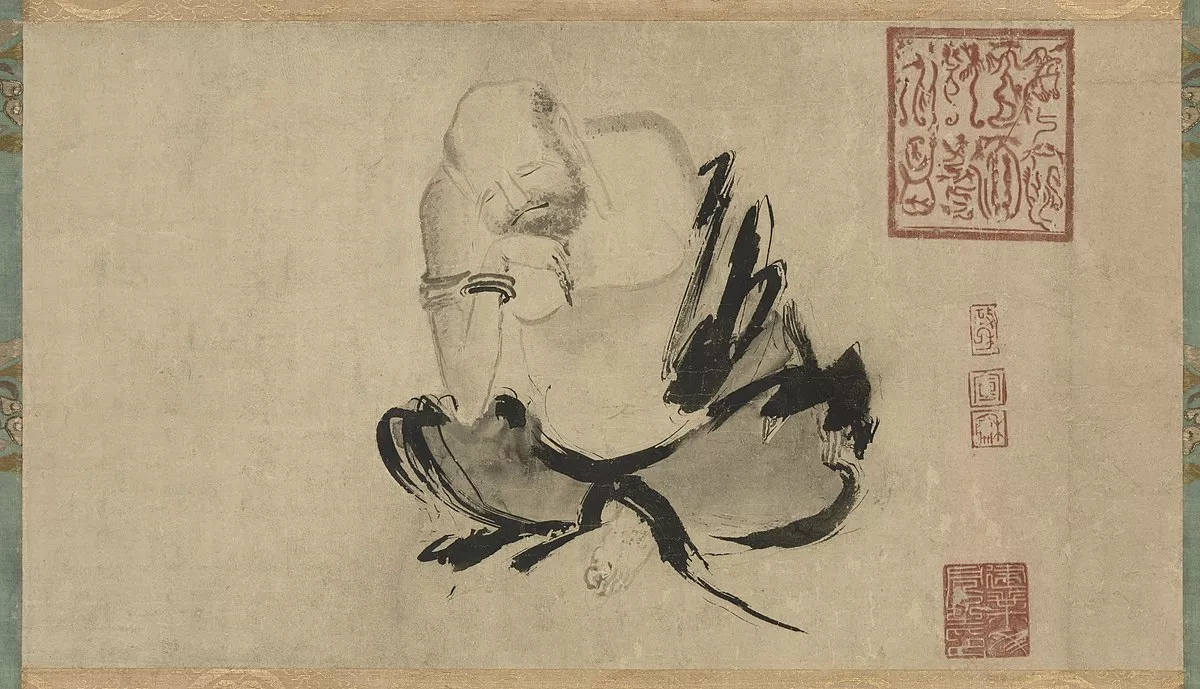 1.
1. Dazu Huike is considered the Second Patriarch of Chan Buddhism and the twenty-ninth since Gautama Buddha.

 1.
1. Dazu Huike is considered the Second Patriarch of Chan Buddhism and the twenty-ninth since Gautama Buddha.
The Hsu kao-seng chuan says that Huike was born in Hu-lao and his secular name was Shenguang.
Dazu Huike met his teacher, Bodhidharma, at the Shaolin Monastery in 528 when he was about forty years old and studied with Bodhidharma for six years.
Dazu Huike went to Yedu about 534 and, except for a period of political turmoil and Buddhist persecution in 574, lived in the area of Yedu and Wei for the rest of his life.
In 579, Dazu Huike returned to Yedu and expounded the dharma, drawing large numbers to listen to his teachings and arousing the hostility of other Buddhist teachers, one of whom, Tao-heng, paid money to have Dazu Huike killed.
The Wudeng Huiyan, compiled by Dachuan Lingyin Puji, claims that Dazu Huike lived to the age of one-hundred seven.
Dazu Huike was buried about forty kilometres east northeast of Anyang City in Hebei Province.
Some traditions have it that Dazu Huike was executed after complaints about his teachings by influential Buddhist priests.
Dazu Huike stood in the snow outside Bodhidharma's cave all night, until the snow reached his waist.
Dazu Huike replied that he wanted a teacher to "open the gate of the elixir of universal compassion to liberate all beings".
Finally, to prove his resolve, Dazu Huike cut off his left arm and presented it to the First Patriarch as a token of his sincerity.
Bodhidharma then accepted him as a student, and changed his name from Shenguang to Dazu Huike, which means, "Wisdom and Capacity".
One of the most important characteristics of the early Chan of Bodhidharma and Dazu Huike was the sudden approach to enlightenment rather than the Indian yogic meditation which advocated concentration and gradual self-perfection.
One text that was circulating at the time of Dazu Huike was the Treatise on the Two Entrances and Four Practices.
The Bodhidharma text and Dazu Huike's letter indicate that the earliest teachings of what was to become Chan emphasized that Buddha Nature was within, and each person must realize this individually through meditation rather than studying the sutras, ceremonies, doing good deeds, or worshiping the Buddhas.